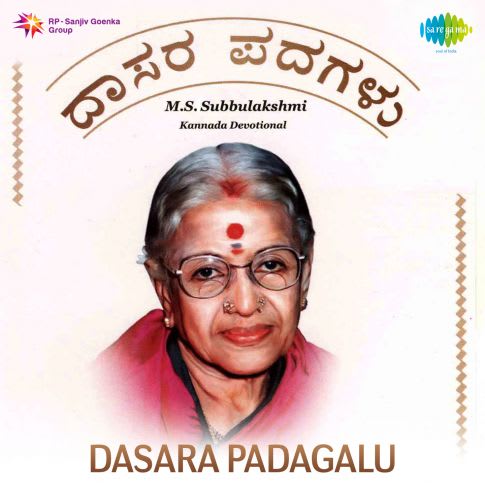M S Subbulakshmi and her music - Part 13: Master of post tani pieces (Thukkadas) - Part 1
Thukkadas or post-tani pieces have their own fan base, and everyone from the past masters to the popular stars of today have their fans eating out of their hands for certain favourite pieces. Whether it be 'vellai tamarai' and the English Note of Madurai Mani Iyer, 'radha sametha krishna' of GNB, the slokhas and 'sapasyat kausalya' of Semmangudi, 'saranagan marugava' and 'srichakra raja simhasaneshwari' of Santhanam, all the way till the abangs of Ranjani-Gayathri and 'thunbam nergaiyil' of Sanjay Subramaniam, concert goers have enjoyed these pieces and associate them with the appropriate artist. While each of them had their own popular set of thukkadas, MS probably had the maximum number of post-tani pieces that were eagerly awaited by the audience. She was the undisputed Queen of the thukkadas.
MS's thukkadas were soaked in bhakthi, and many of these pieces impacted people, not just due to the music, but because MS's personality was blended into these pieces. It is impossible to list all of those pieces, but let me put up a bouquet in front of you for your enjoyment.
Let's start with this amazing ragamalika piece from 'Silappadhikaram' of Ilango Adigal. 'vadavaraiyai maththaaki'.
Given that this piece is from an ancient Tamil text, the brilliant diction adds so much to the rendition. And we must appreciate whoever tuned this piece. (Was it Kadayanallur Venkatraman?) Again, that ability to infuse bhakthi into the words takes the piece to a different level. Just hear, 'kann imaithu kanbar tham kann enna kanne' And the slow buildup to 'narayana enna naavenna naave.' And that final jaru, reminding us of the extraordinary voice control. Not in an in-your-face way, but with subtlety and finesse.
MS did a huge service to the cause of Tamizh Isai, and she often sang some wonderful Tamil pieces in the post-tani segment, many of which remain popular to this day. Kalki was a major proponent of Tamizh Isai and they collaborated to give some wonderful pieces.
Here is 'malai pozhudhinile', a piece written by Kalki. (I don't know who tuned this in a ragamalika.) A young MS is heard here, but you can hear all those traits that made her who she was: diction, voice control, vocal dynamics, infusion of emotion into words, the drama and restraint.
'arar asai padar,' the Muthuthandavar krithi was one of her favourites. She prefaced it with Ramalinga Adigalars, 'petra thai thanai.' And Nadanamakriya was a favourite ragam of hers, which inevitably made an appearance in her concerts. The slokham itself puts you into a contemplative mood, and the mood continues into the krithi.
As can be expected, MS took a lot from bhakthi literature and made some of the poems immortal. I can never read Thondaradipodi Azhwar's 'vandinam uralum soliai' as it is. I always hear it in MS's voice. Again, this ability to enunciate every word perfectly without losing track of Todi, the raga in which this pasuram is tuned, is what makes the experience enjoyable. And this pasuram gives full scope to MS to drench it with emotion since Tondarpadipodi Azhwar himself is in an ecstatic state in this pasuram. Phrases like 'ezhaiye ezhaiyene,' 'oorile kani illai uravu matroruvar illai,' ;kaaroli vannane kannane kadarinene' are right up her lane and she immerses herself fully into image of the Permual when she sings this piece.
Here is Thevaram of Sundarar. 'piththa piraisoodi' Again in Nadanamakriya.
Of course, it is impossible to constrain someone like MS to only one language. She sang across multiple languages. She not only sang tunes set to bhakthi poetry, but she also sang the tunes of the major composers like Purandaradasa and Tyagaraja in the post-tani segment.Here she sings Tyagraja's 'tavadasoham' based on Punnagavarali, another raga she loved, especially for post-tani pieces. This is a Divyanama Sankeertanam of Tyagaraja, written in Sanskrit and Telugu. MS's diction of both Telugu and Sanskrit is top-class.




Comments